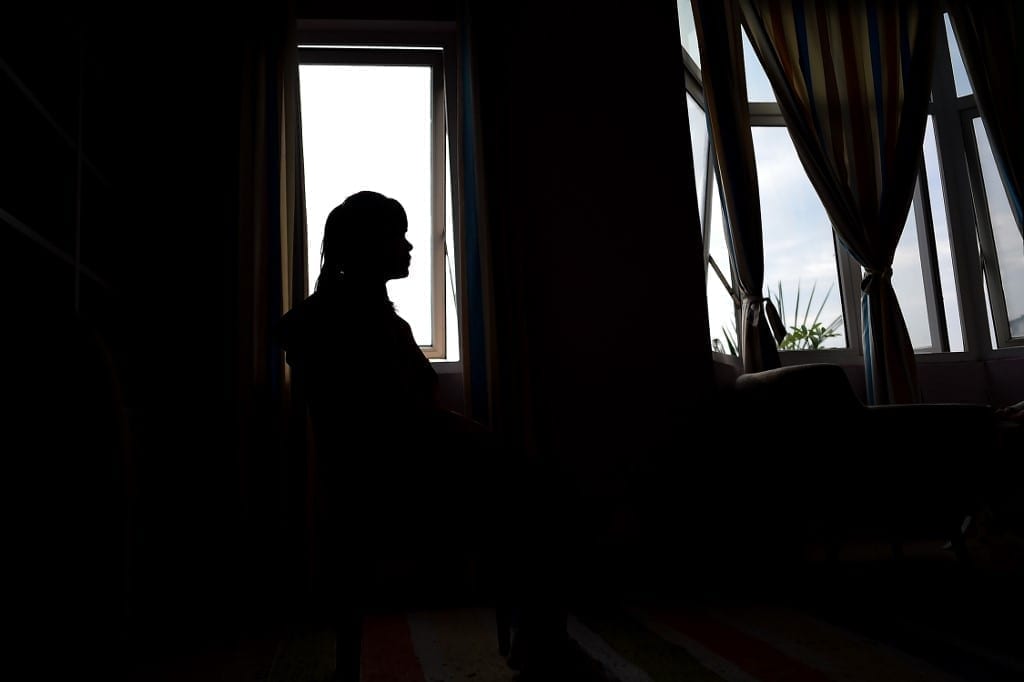The divorce experience was easy for me, and it could have remained so, if the air I breathed had remained the same. But the atmosphere was quickly transforming into a heavily polluted cloud, caused by people around me who decided to mix my divorce with different stimuli and catalysts, with the aim of labelling me with stereotypes, branding me as strange, ungrateful, insane, selfish, and perhaps even “immoral”! The trap was always to respond and sink into this stereotyping and to feel stigmatized, become socially withdrawn, and fade away.
Paradoxically, the ineptness of my emotional intelligence has shifted from a curse into a blessing, as I had understood the stereotyping and people’s desire to stigmatize me rather late. Those with weak emotional intelligence do not usually react as they are expected to; they are always stuck at the borders of astonishment, so I stood steadily amazed, so the stigmatization didn’t really hit me hard, nor damage my self-confidence. Still however, it used to leak into my nightmares, and I’d address myself in the mirror when I woke up, with a sentence that I used to say to myself: “Oh girl, live bullets passed by your side during the revolution, yet here you are, alive and kicking, what words can be equal to bullets? And who else but you have all this hidden Lord’s mercy? You are stylish, and you refuse to grow old quickly, so don’t let sadness get hold of you easily.”

Slowly, I was looking at my new life from above and following what was changing. I had originally thought that my space was largely protected by secure circles, ones that would not repel a divorced woman. But the close circles are no longer close, and they have begun to deal with me like a stranger, until I prove the opposite and remarry, so I could become normal and in accordance with the general context. This context considers marriage as the norm, and divorce the symptom of a disease.. Marriage is a goal that must be achieved. Society will put it to you in your list of life achievements, perhaps before your academic or professional success.
I remember a colleague journalist who once said to me that she was an admirer of my experience of independence from my family, which was motivated in part by the revolution, and considered my experience more successful than hers, because my experience was crowned with marriage. I could not understand at the beginning why it had been an achievement? What does it have to do with my life project? She would reply: “Of course, marriage is an achievement, not all girls succeed to get rid of celibacy and settle down.”
The theory of my colleague was worth considering in the opposite context, if I became divorced, or had I never married, would this safe society be less satisfied with me? Especially my inner circles which belong to the classes that seem more aware and educated than the rest of the community which is stuck in polemics that we always claim to have surpassed, and this is the lesson of joining the divorced women’s club, to see another face of your supposedly secure circles.
Today I left the divorced women’s club, and I may come back and leave it again, but I am stressing that the personal history of women must be documented, especially the personal history of divorcees.
In our secure circles, as divorcees, we will discover the supporters to be a minority, and discover also those who look at us with pity, those who turn their eyes away from us with confusion, those who curiously search for our strengths and weaknesses. How unfortunate a divorcee would be if she revealed some of her fragility. She would get tens of sexual offers, not out of love or passion, but rather from the assumption that a divorced woman is an easy woman. If she is strong, she will be stigmatized and will go through an endless, exhausting battle.
One time during a discussion with a friend, we talked about his old love that married another, and he was telling me that she left her husband. I jumped out of joy that life offered him a new chance to regain his old love, but he responded without thinking, “No, she failed and got divorced, she could no longer be my wife.” I experienced then that feeling when a phrase accidentally stings you, and my friend apologized if his words hurt me, but I realized that his comment was not just his personal opinion, but that he had summarized what society had always thought about a divorced woman, in a brief phrase, “a failure.”
In the divorced women’s club, a metaphor for divorced women in poor and middle classes, divorced women are not failures, but exhausted fighters, condemned and pitifully harmed by society, who do not expect any high ambitions from them in building a family, social, or professional future. Society allows them minimal ambition. The general rule is that the divorcees are married only to other divorced or older men. She should not aim any higher, because she would not be allowed to do so.
Married women are also afraid of divorcees because they are seen as potential “hunters” of men, and their treatment protocol stipulates that, in front of the divorcee, you’d lament your husband’s bad character and poverty, so that they do not aspire to pick him up later. As for the aunts and mothers of friends, they always adhere to the principle that “You did not sacrifice enough, we all made infinite sacrifices; that is why we are still married”. Even if women are complicit in a miserable marital life, it is important for the system to continue in its seeming, deceitful form.
I thought I was more aware of the issues of ending my marriage diplomatically, preserving both sides a worthy privacy, but in our society one cannot bet on the awareness of other parties and its fall into areas of avoiding mistakes, and here is the bigger trap. Silence is a real struggle and space to push both supporters and opposers to their playgrounds. And as long as silence has also become a sign of condemnation in the protocols of our society; the divorcee must learn a single phrase to respond to prosecutors: “Go to hell, filthy animals.”
The traditional circles in our society do not consider divorce merely a personal matter and an individual decision, because to some it is considered a registration in a campaign against the marriage establishment. Even if I were not interested in such a registration, with or against this “holy” institution, a woman’s exit from it means that she is one of the rebels. I am almost certain that men do not face this same high-intensity charge that women in our societies do. Getting out of the marriage establishment could be likened to surviving drowning, filling your lungs with some air at the last minute. It is a unique enlightenment, which is sometimes enough to repair the breakdown and lubricate some of the gears that have rusted over time. Why does ending a marriage make us feel lighter, despite the pain? I think the answer is clear, despite attempts to deny it.
I do not hide that I was among those who consider divorce as a sign of failure, and I remember, while I was keen on reading literature during my university studies, I came across an electronic version of the book, “Diaries of a Divorcee”, by the Syrian writer Haifa Al-Bitar. The book combined biography and literature, with an interesting preface signed by Gamal Al-Ghitani. Yet I was not excited to read it, but rather my impression at the time was clear and sharp, that the book was full of feminine drama, sentimentality, and strange ideas. Recently, I remembered the same book, and I am still not excited to read it, but it is enough that my impression of the diaries of divorced women are less dramatic and more serious.
Today I left the divorced women’s club, and I may come back and leave it again, but what I am stressing is that the personal history of women must be documented, especially the personal history of divorcees. I did not write about my personal experience only to get rid of the attempts of stigmatization that pursued me for no reason for a year, but to imagine what divorcees in our Arab society, who have booked their seats in the divorcees club for more than five years, a decade, or more, suffer and their experiences are full of stories that should be told.






